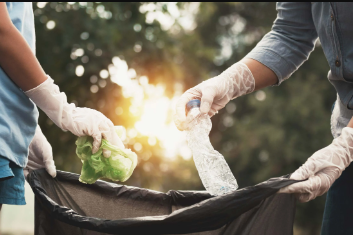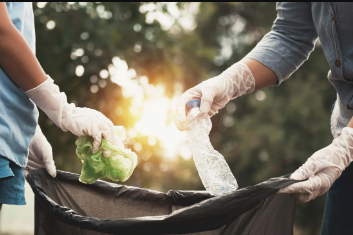In the shift towards sustainability, one of the most significant challenges industries face is managing hard-to-recycle plastics. This is particularly true for large manufacturers who often see substantial amounts of these materials enter the waste stream, only to end up in landfills. Environmental consulting, particularly focused on large-scale recycling programs, plays a crucial role in addressing this issue, transforming how companies handle their waste and integrate sustainable practices into their operations.

The Importance of Environmental Consulting
Environmental consultants provide expert advice and actionable strategies to help businesses reduce their environmental footprint. In the context of plastic waste, these professionals analyze the types of plastics generated by a company and develop customized programs to manage and repurpose these materials. This is not just about compliance with regulations; it’s about turning waste into a value stream, enhancing both environmental and economic outcomes.
Challenges with Hard-to-Recycle Plastics
Plastics like polyethylene (PE), polypropylene (PP), and polystyrene (PS) are often deemed hard to recycle due to their varied melting points, additives, and contamination levels. These materials require specialized processes to recycle effectively, processes that are not universally available and can be cost-prohibitive. Environmental consultants assess these barriers and work with manufacturers to find feasible solutions, such as improving sorting technologies or finding markets for recycled materials.
The Role of Large-Scale Recycling Programs
Large-scale recycling programs are designed to handle truckload quantities of waste material, making them ideal for manufacturers and distributors that produce large volumes of scrap plastic. These programs not only aim to recycle plastics but also to optimize the logistical and operational aspects of waste management. By focusing on hard-to-recycle plastics, these initiatives push the boundaries of traditional recycling methods and innovate new ways to reclaim and repurpose materials.
Case Studies of Successful Integration
Many companies have successfully implemented such strategies with the help of environmental consultants. For example, a large automotive manufacturer partnered with a sustainability consulting firm to develop a closed-loop recycling system for polypropylene. By modifying their supply chain and manufacturing processes, they were able to significantly reduce their reliance on virgin plastics and lower their overall environmental impact.
Another case involved a national retail chain that used environmental consulting services to overhaul their waste management procedures. The consultant helped them implement a comprehensive recycling program that not only included plastics but also organic waste and packaging materials, achieving impressive reductions in overall waste.
The Future of Plastic Recycling and Sustainability
The future of sustainability in manufacturing and distribution lies in adopting more comprehensive, innovative recycling programs. As technology advances, so too will the ability to recycle more complex plastics. Environmental consulting will remain a critical element, guiding companies through the transition to greener, more sustainable practices that not only benefit the planet but also enhance operational efficiency and profitability.
In summary, tackling the challenge of hard-to-recycle plastics through environmental consulting and large-scale recycling programs is not just an environmental necessity but a strategic business move. As industries continue to evolve, the role of sustainability in corporate strategy will only grow, reinforcing the need for innovative and effective waste management solutions.





Comments